⬇️⬇️⬇️
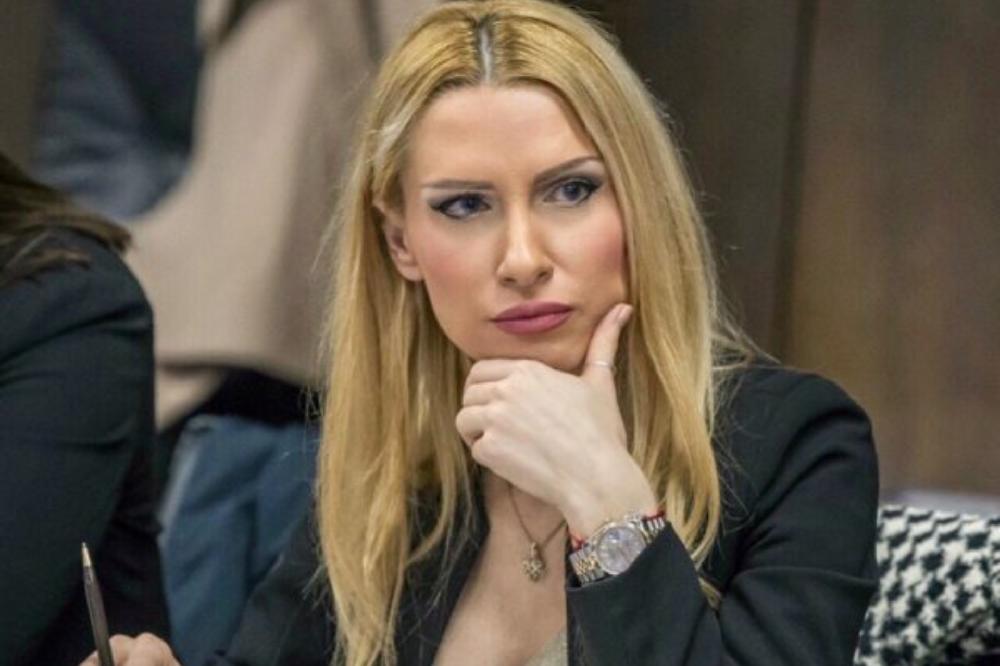
❗️On this occasion, Minister Lührmann emphasized the importance of efforts made by the EU and especially Germany in achieving climate neutrality. As an important message, Minister Lührmann mentioned the conclusions adopted at the Climate Conference in Dubai in December 2023, where it was concluded that the entire world should transition from coal to renewable energy sources.
❗️Dr. Ivana Vojinović, Director of the Center for Climate Change at UDG, informed the minister that Montenegro🇲🇪 belongs to the European region most vulnerable to the consequences of climate change, and that there has been a 1.1°C increase in average temperature over the past 30 years. Vojinović pointed out the necessity for Montenegro to increase its climate ambition regarding greenhouse gas emission reduction from the current 35% to 55% by 2030, as well as to accelerate the adoption of the National Energy and Climate Plan, which should integrate the EU’s climate-energy framework by 2030.
🟢 The meeting was attended by Draško Boljević, Director of the Eco Fund, Nikola Vujošević, representative of the Ministry of Energy and Mining, and Jasna Sekulović from GIZ. The German delegation was represented by H.E. Peter Felten, Ambassador of Germany to Montenegro, Mareike Well and Frédéric Jörgens from the Federal Ministry of Foreign Affairs, and Enis Čindrak from the German Embassy in Montenegro.
❗️Concluding her visit to the University of Donja Gorica, Minister Lührmann delivered a lecture to UDG students👩🎓👨🎓on the topic of climate change🔥💨 and the benefits that environmentally friendly lifestyles bring to EU citizens.🌲🌳
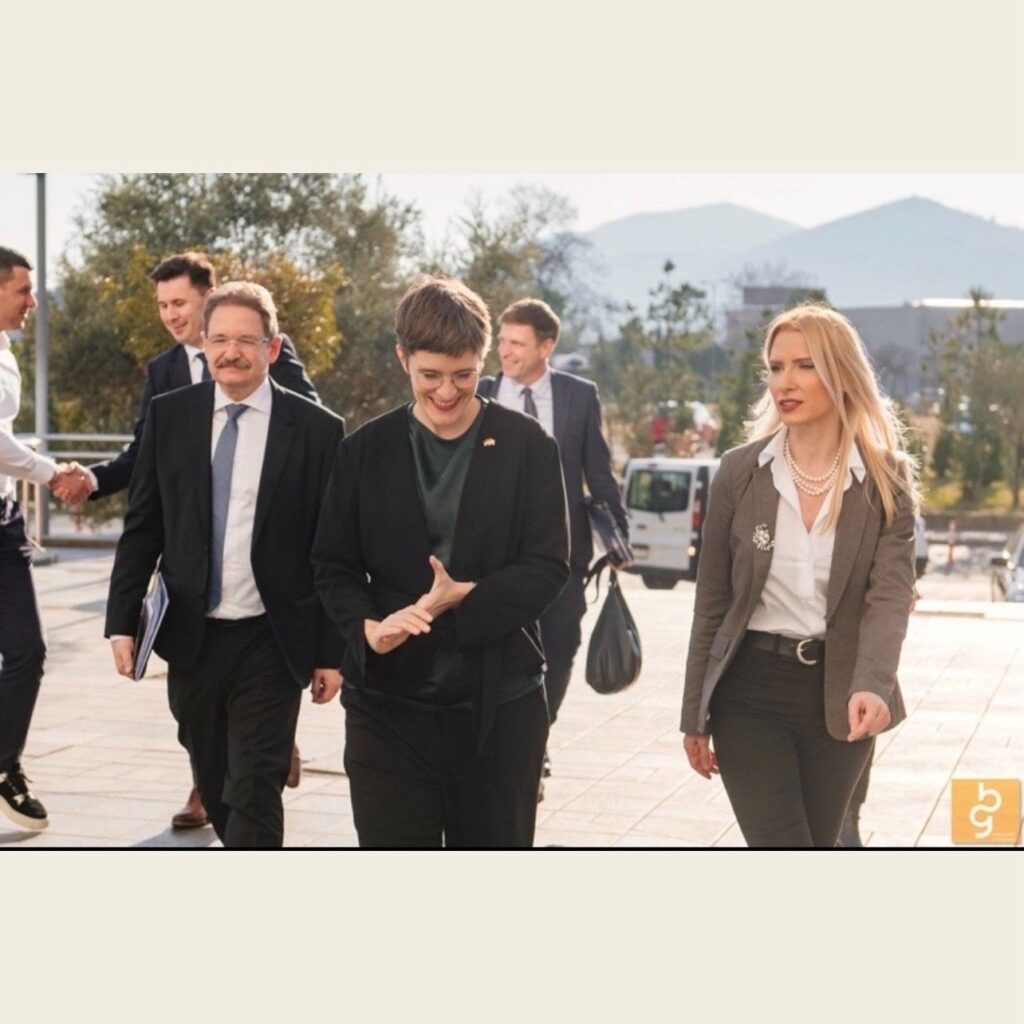
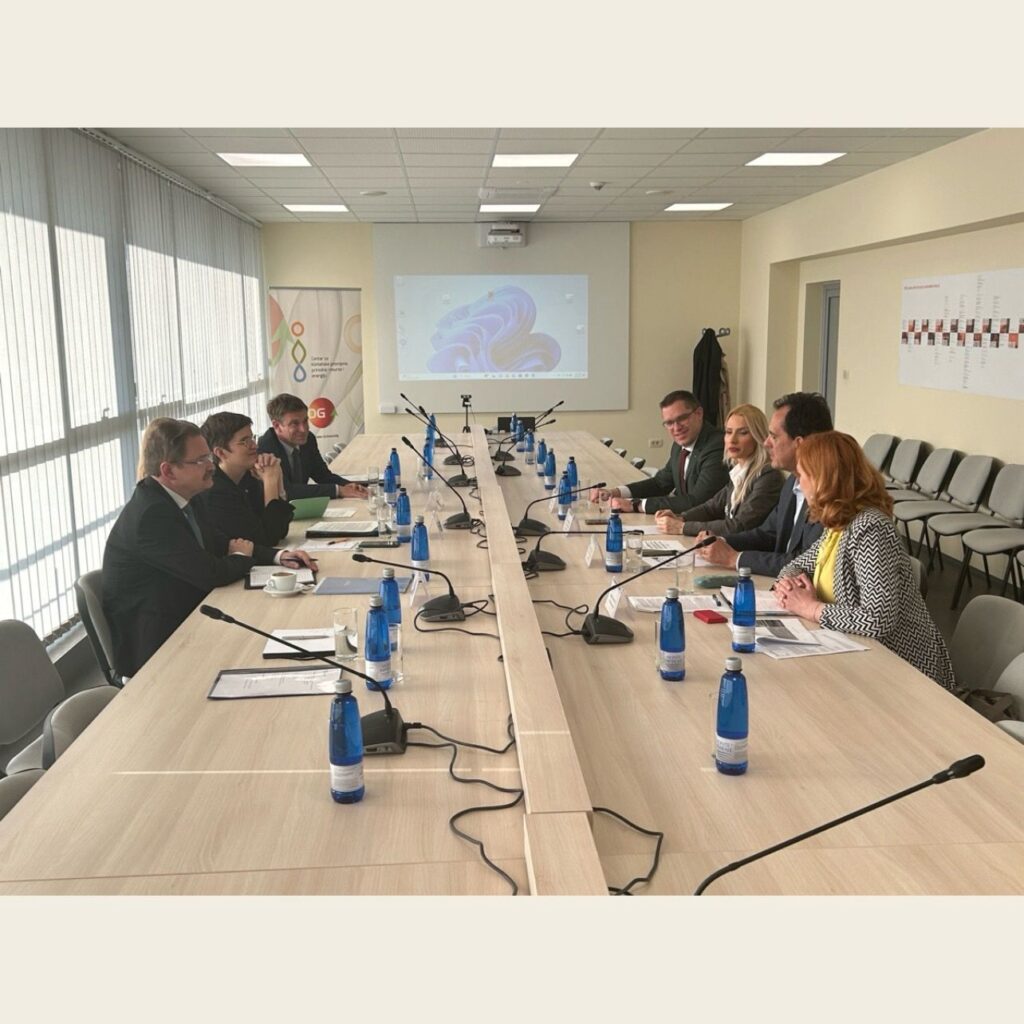
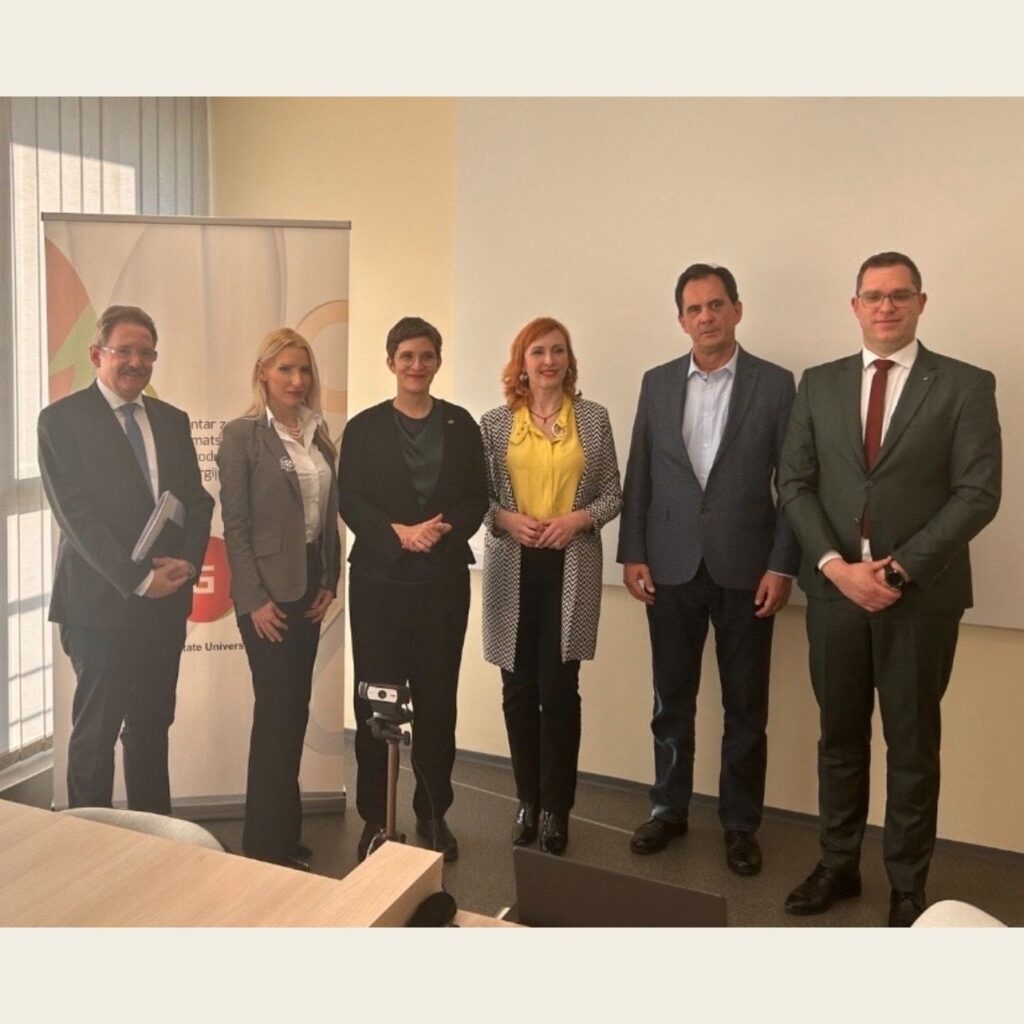
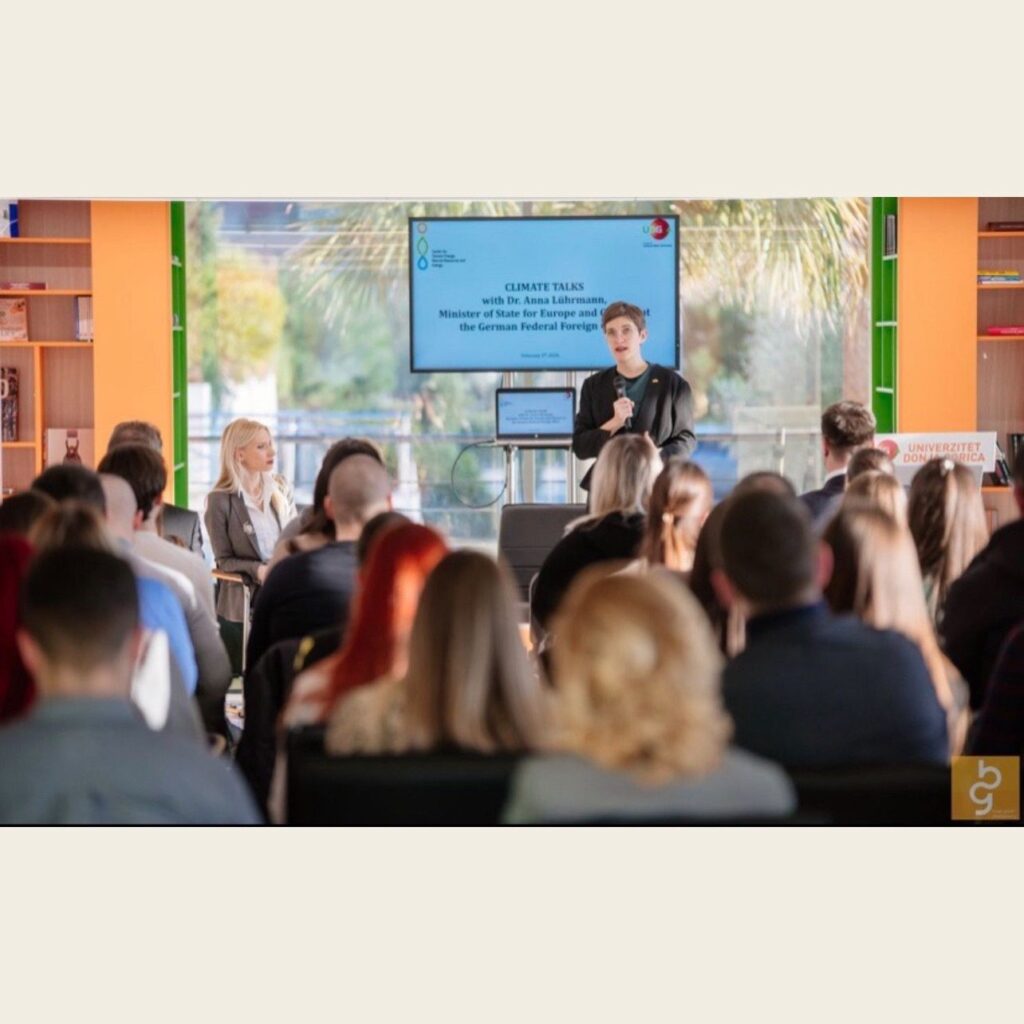
📰 Interview with the Director of the Center for Climate Change at UDG, Ivana Vojinović, for the portal dnevno.me on the topic of obligations from the Green Agenda 🌳🌲🍀
⬇️⬇️⬇️
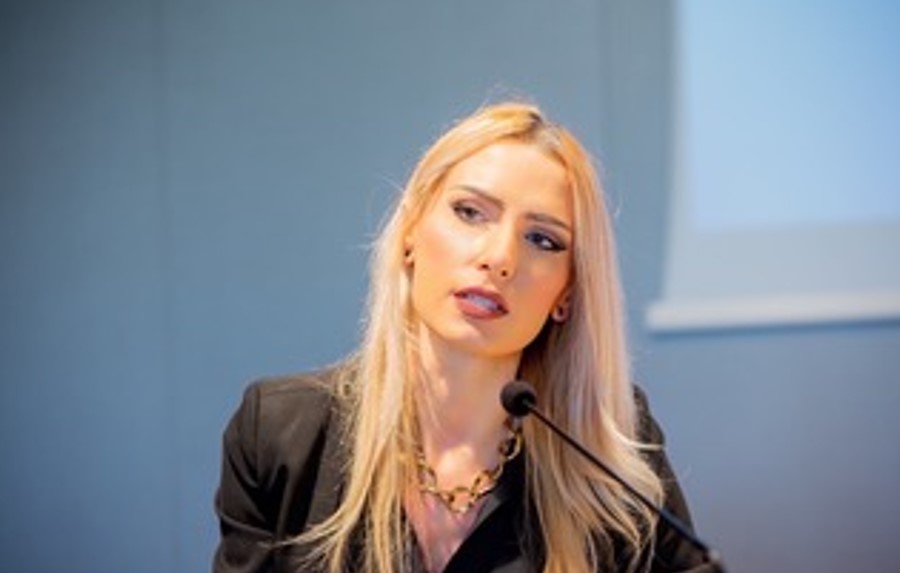
The project “Decarbonization of Montenegro through the Link between Climate Change and Diplomacy (#CLEDEXUS#)” was presented, supported by the Embassy of the Federal Republic of Germany in Montenegro.
Similarly, the project “Youth for Sustainable and Circular Textiles” 👚👧🏻👖 was introduced as part of the Regional Program on Local Democracy in the Western Balkans 2 – ReLOaD2, funded by the European Union 🇪🇺 and implemented by UNDP in partnership with local authorities.
🟢 The general objective of the project “Knowledge on Chemicals towards Sustainable Communities” is to reduce environmental pollution from chemicals 🧪 by strengthening the role of CSOs in fulfilling obligations from the EU integration process, which will be achieved through the education of youth, providing initial inputs for decision-makers through quality structured research 📊 on the ways of using and disposing of chemical products, as well as the level of awareness of the dangers of this type of pollution.
🟡 The project “Knowledge on Chemicals towards Sustainable Communities” is supported by the SMART Balkans grant – Civil Society for a Connected Western Balkans implemented by the Center for the Promotion of Civil Society (CPCD) – Bosnia and Herzegovina, the Center for Research and Policy Making (CRPM) – North Macedonia, and the Institute for Democracy and Mediation (IDM) – Albania, financially supported by the Ministry of Foreign Affairs of the Kingdom of Norway.
🔵 SMART Balkans aims to contribute to strengthening participatory democracies and Euro-Atlantic integrations in the Western Balkans by empowering CSOs for a stronger and more active role in creating peaceful and inclusive societies for sustainable development in Albania 🇦🇱, Bosnia and Herzegovina 🇧🇦, Kosovo 🇽🇰, Montenegro 🇲🇪, North Macedonia 🇲🇰, and Serbia 🇷🇸.
SMARTLY connected! Western Balkans need a SMART approach!
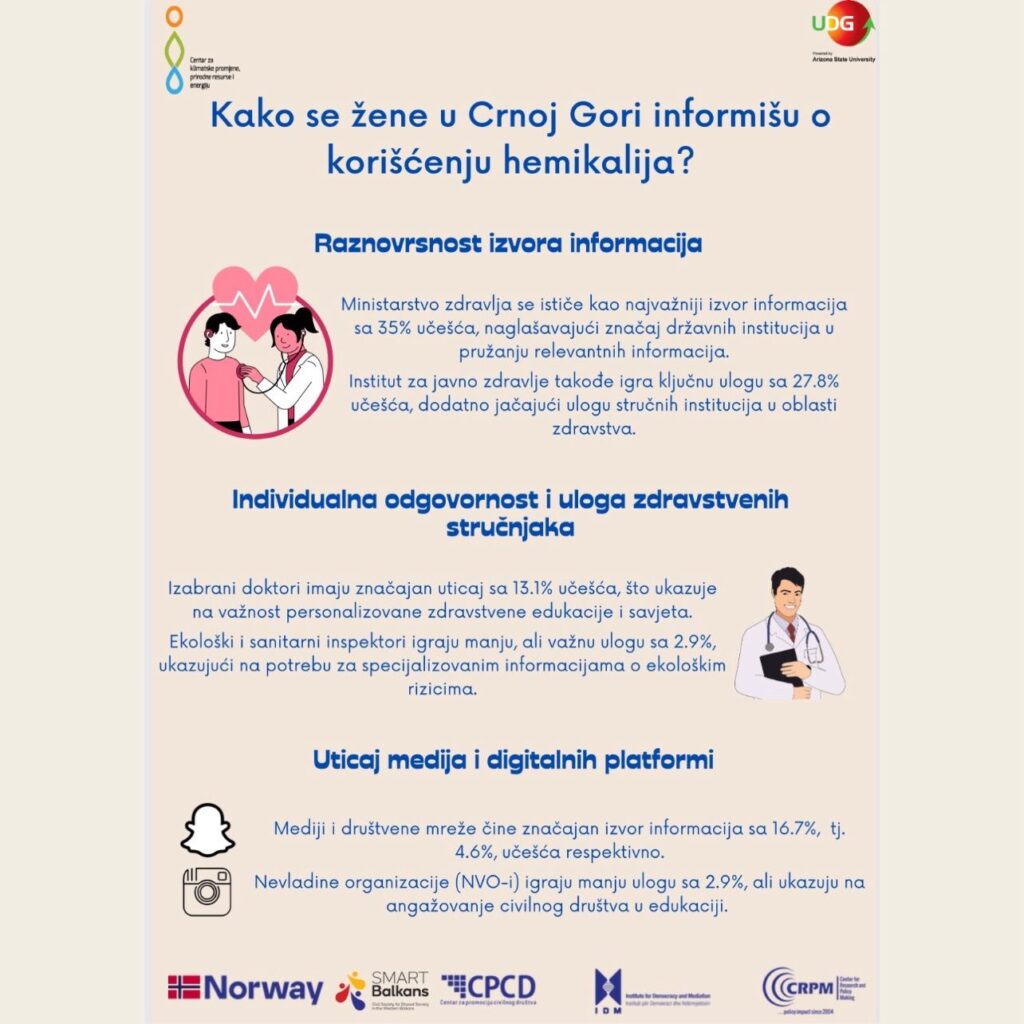
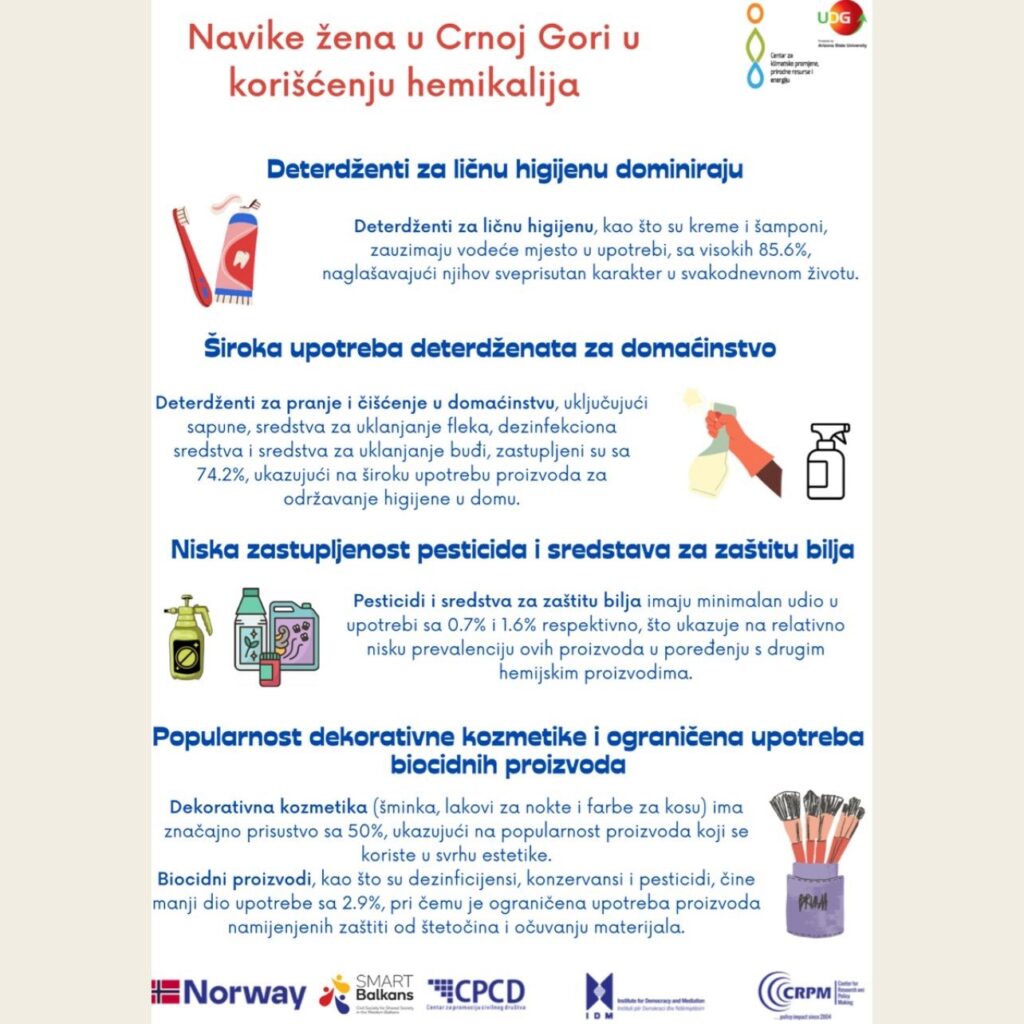
🔴 Interview with the Director of the Center for Climate Change at UDG, Ivana Vojinovic, for DEUTSCHLAND.de, a portal supported by the Federal Foreign Office, Berlin.